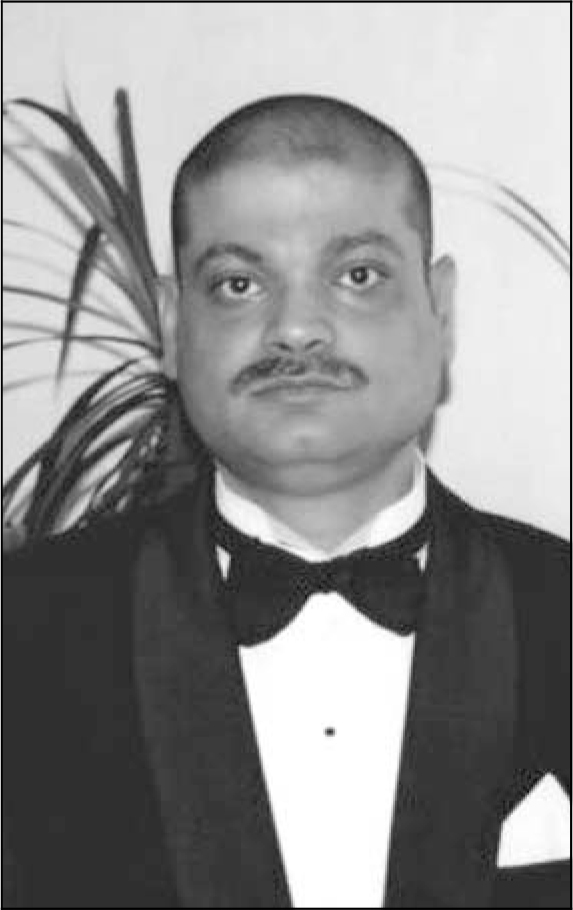
Dr Naresh Gandhi died from a bleeding duodenal ulcer on 14 August 2005. He was just 43.
Dr Gandhi graduated in Bombay in 1984 and obtained his MD in 1989. He was an outstanding student and, in addition to showing excellence in all areas of the medical curriculum, his flamboyance and cheery self-confidence made him a magnet for other students. He found time to edit an in-house university magazine and a science journal, which he continued to do with great success for many years. He decided to specialise in psychiatry early and came to England in 1989. After completing his senior house officer training and engaging in research projects, he was appointed as Lecturer in Psychiatry at Imperial College in 1993 before becoming a consultant in Intensive Care Psychiatry at the Park Royal Centre for Mental Health in 1995.
At Park Royal, he quickly established a comprehensive service for forensic patients in an area of the country which has been shown to have an excessive demand (Reference Coid, Kahtan and GaultCoid et al, 2001). His combination of great self-confidence, ability to rapidly analyse a situation and to make bold decisions made him a very popular and effective clinician. His court reports were a model of clarity and precision and his opinion was increasingly sought by solicitors who wanted someone to pronounce without obfuscation and caveats on important clinical issues. He was also an effective manager of the service at Park Royal and in many ways this became an additional medium forensic secure unit in all but name.
Dr Gandhi was a man of razor-sharp intelligence who was very impatient to get things done. Although this was somewhat of a handicap when he was doing research, as he always seemed to know the answer before the research was completed, it was a tremendous asset in forensic mental health services, and the service could always rely on Naresh to find solutions when many others would have failed. He was always willing to give advice but very rarely needed to seek any himself.
Naresh continued to remain firmly and deliberately in the ‘line of fire’ throughout his working life. He worked excessively long hours and never shirked a new challenge, particularly if it involved a slight element of risk. This may have had a bearing on his final illness, as there was always some new enterprise pressing and as he was always optimistically convinced that everything was for the best, he failed to seek advice for his symptoms until he was very ill.
He married Alison, a Scot, in 1993 and had two sons, aged 10 and 16, of whom he was very proud. Naresh, as might have been predicted from his international spirit, readily embraced all aspects of his new culture with gusto and was equally at home with Indian and Scottish music, which had he lived, he would probably have tried to meld into a common form. He leaves a deep hole in forensic psychiatric practice and an even bigger one for his family, many friends and colleagues in North West London.


eLetters
No eLetters have been published for this article.